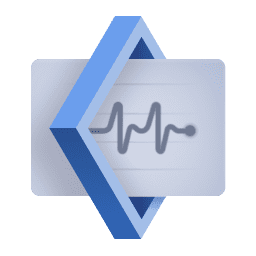Experience Vitals
- Latest Dynatrace
- App
- 4-min read
About the app
 Experience Vitals is an entry point for frontend monitoring of web and mobile applications.
Experience Vitals is an entry point for frontend monitoring of web and mobile applications.
It provides a list of monitored frontends, along with several Digital Experience performance metrics, like Core Web Vitals and app start duration, that indicate the health state of frontends. Furthermore, it visualizes frontend traffic and synthetic availability.
The provided metrics can be analyzed with different filters, such as browser type, operating system, or country name. The app also contains a frontend creation flow to set up new monitored frontends and the frontend monitoring settings.
Prerequisites
You need to have the New RUM Experience enabled. For more information, see Web frontends and Mobile frontends.
When you open the app, you're welcomed with an overview of the monitoring and health states of the frontends:
- The number of frontends that are enabled on Grail. Only frontends that are enabled on Grail are monitored in the Experience Vitals app. Grail monitoring can be easily enabled in the frontend settings.
- Health state of frontends: This breakdown shows the number of frontends by health state:
Critical,Healthy, orClosed. - Links to the setup flow and the Explorer view.
The overview includes links to ready-made dashboards and notebooks to help you start leveraging user events for various use cases with the platform tools  Dashboards and
Dashboards and  Notebooks.
Notebooks.
Explorer view
The Explorer view provides an overview of all frontends, along with Digital Experience performance metrics and health alerts. You can open the Quick filters bar on the left to filter the frontends for different properties, such as alert status, RUM, and various settings.
The default selection for the analyzed timeframe is Last 2 hours, but you can change it using the timeframe selector in the upper-right corner. There's no limit on the selectable timeframe. For frontend metrics shown on the Explorer and Performance pages, the default retention period of 2 years applies.
Frontend summary - Overview tab
When you select a frontend from the *Frontends table on the Explorer page, a summary view presents you a range of overtime metrics and further frontend-related data.
All frontend types:
- Active users & sessions
- Error rate: Error count per minute grouped by error types, including both request errors and custom errors
- Filterable by error type
Web-related:
- Synthetic Availability
- Core Web Vitals
- W3C navigation timings
- Called services: which services the frontend interacts with
Mobile-related:
- App start duration: Duration from app opening to when the first view becomes visible
- Filterable by cold and warm app start
- App start count: Count of app starts during one minute
- Filterable by cold, warm and hot app start
- Crash rate: Crash count per minute
The mobile charts additionally allow to not only filter by certain criteria, but also allow splitting by app version.
For further drill-down analysis, select Analyze performance in the upper-right corner or at top of one of the cards to open the Performance analysis view.
Health - Alert status
The alert status is set with alerts raised by Dynatrace Intelligence. To configure this, select a frontend, go to the Settings tab, and select Health Alert.
The alerts are based on seasonal and auto-adaptive anomaly detection models.
Health alerts are shown then in the Frontend tables in the Explorer view, and also marked above the charts.
Frontend summary - Settings tab
When selecting a frontend from the overview table, the Settings tab contains the frontend settings.
For example, you can turn on RUM Experience in the Enablement and cost control section, change the display name, or configure the health alerts.
For details on the available settings, see Web frontends and Mobile frontends.
Mobile frontend summary - Instrumentation tab
For all mobile frontends, you can navigate to a specific instrumentation tab and get guided through the instrumentation process for different platforms.
This contains the native Android, iOS instrumentation instructions, as well as the cross-platform React Native, Flutter, and .NET Maui instructions.
Set up a new frontend
To set up an additional monitored frontend, select + Frontend and use the Frontend creation flow, which walks you through how to monitor your frontend and which decisions and actions you should take.
Performance analysis
The Performance view displays charts that are also available in the frontend summary, enhanced with additional drill-down options.
The filter bar supports filtering of the performance metrics by country code, browser name, device type, operating system, and user type. Moreover, the performance analysis view contains a list of frontend errors with a link to  Error Inspector for further analysis.
Error Inspector for further analysis.
The performance analysis offers further drill-downs to the page, web, and mobile view levels. The data is based on raw user events.
When you reach an increased data volume due to a larger timeframe or ingest a high amount of data, the data is sampled automatically. You can identify sampled data when the information icon next to the cards turns blue. There, you will also find further explanations. To query data with a lower or no sampling rate, you can either reduce the timeframe inside the app or use the Open with Notebooks link, which is available next to all data charts and tables.
For web pages you can also drill down into single page instances, containing the Page load waterfall.
 Experience Vitals
Experience Vitals